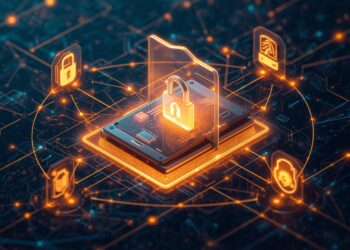The rise of digital technology has led to an explosion of information. Unfortunately, this information is not always accurate. Fraud and fake news are rampant, causing harm to individuals and businesses alike. Traditional methods of combating these problems often fall short. This is where blockchain comes into play. Its potential to change the game offers hope for a more secure and truthful environment.
Enhancing Transparency and Traceability with Blockchain
How blockchain’s immutable ledger combats data manipulation
Blockchain acts as a digital ledger. Each transaction or piece of data is stored and cannot be altered without consensus from the network. This makes it nearly impossible to manipulate data. By securing information in this way, blockchain can effectively deter fraud.
Real-world examples of blockchain’s use in supply chain transparency to prevent fraud
Companies are using blockchain to track products from origin to final sale. For example, the food industry has implemented blockchain to monitor supply chains. By recording every step, consumers can verify the freshness and source of their food. This transparency helps to prevent fraud and ensures product quality.
A specific company leveraging blockchain for anti-counterfeiting measures
Luxury brands often face issues with counterfeit goods. One notable player is LVMH, which has adopted blockchain technology to authenticate its products. Using blockchain, customers can verify if their purchase is genuine through a simple scan, reducing the risk of fraud.
Verifying Information Sources and Combatting Fake News
Blockchain’s role in establishing trust and authenticity of information
Blockchain technology can be a tool for verifying the origins of information. By recording the source of news articles or social media posts, users can determine if the information is authentic. This traceability can reduce the spread of misinformation.
Examples of platforms utilizing blockchain for verifiable news sources
Several startups are exploring blockchain for news verification. For instance, the platform Civil allows journalists to publish verifiable news articles directly on the blockchain. This method encourages transparency and limits the spread of fake news.
Exploring the potential of blockchain-based decentralized news aggregators
Decentralization offers a way to combat bias in news reporting. Platforms that use blockchain can gather news from various sources without central control. This not only broadens perspectives but also makes it easier to fact-check against false narratives.
Securing Digital Identities and Preventing Impersonation
Blockchain’s ability to create secure and verifiable digital identities
Blockchain helps to create digital identities that are secure and verifiable. Unlike traditional systems, blockchain identities are encrypted and tamper-proof. Users can control their information, reducing the risk of identity theft.
How secure digital identities reduce the risk of online fraud and identity theft
With secure identities, the chances of impersonation fall dramatically. Users can confidently engage in online transactions, knowing their personal information is safe. This shift could revolutionize how we interact online, lowering fraud rates significantly.
Case studies demonstrating the use of blockchain for secure identity management
Estonia is a trailblazer in digital identity management. The country has implemented blockchain technology to secure its digital identities for citizens. This system allows secure access to services, reducing instances of fraud and enhancing user trust.
Improving Data Security and Preventing Data Breaches
Blockchain’s decentralized nature and its role in data protection
Blockchain’s decentralized structure offers a robust defense against data breaches. Unlike traditional databases, which can be vulnerable, the spread of information across a network means that a single point of failure does not exist. This greatly reduces the risk of massive data leaks.
How smart contracts enhance data security and prevent unauthorized access
Smart contracts function on blockchain networks to automate agreements and transactions. They ensure that data is only accessed or shared under predetermined conditions. This adds an extra layer of security, preventing unauthorized access and protecting sensitive information.
Examples of blockchain applications in protecting sensitive information
Several organizations focus on using blockchain for data protection. Healthcare companies utilize blockchain to secure patient records. This ensures that only authorized personnel can access sensitive information, greatly improving patient confidentiality.
The Future of Blockchain in Combating Fraud and Fake News
Challenges and limitations of implementing blockchain technology
While the benefits are clear, challenges remain. Establishing a blockchain system can be expensive and require significant changes in existing processes. Additionally, there is a learning curve for users to adapt to new technologies.
Future developments and innovations in blockchain-based fraud and fake news detection
As technology evolves, we can expect more sophisticated applications of blockchain. Innovations like AI-driven analytics could enhance fraud detection capabilities. The combination of these technologies may significantly cut down instances of fake news and fraud.
Tips for individuals and organizations to utilize blockchain for enhanced security
- Research: Understand how blockchain can benefit your specific needs.
- Invest: Consider investing in blockchain solutions for your business.
- Educate: Train staff on the uses and benefits of blockchain technology.
Conclusion: Blockchain as a Key Tool in the Fight Against Misinformation and Financial Crime
Blockchain technology offers a powerful solution against fraud and fake news. Its transparent, secure nature makes it an effective tool for enhancing trust in information and protecting data. As we move forward, embracing blockchain can help create a more trustworthy digital environment. Explore blockchain solutions today to stay ahead in this battle against misinformation. The future is promising, and blockchain is set to play a significant role in shaping a safer digital world.

























